WSIS Action Line C6: Enabling Environment “Collaborative Regulation Interactive workshop” with the active participation of Regional Regulatory Associations (RAs)
International Telecommunication Union (ITU)
Session 429
Collaboration for Impact
As stated in the Global ICT Regulatory Outlook 2023 in most countries worldwide, multiple agencies have been established with mandates over digital transformation issues. They have been tackling the challenges of telecommunication/ICT markets and navigating digital transformation to unleash new benefits and opportunities for people, governments and businesses. Despite the many efforts under way, many agencies are still defining how to reach for and achieve whole-of-government and outcome-oriented collaboration.
Collaboration between the ICT ministry and other government ministries is prevalent in two thirds of countries worldwide. There is little difference in the level of inter-ministry collaboration at the global level in the areas of health, education, environment and the economy, with two thirds of countries engaging in either formal or informal collaboration. There is still room for improvement in national and international stakeholder collaboration engagement.
In this sense, the BDT Director, Dr Cosmas Lukyson Zavazava, launched last year the Digital Regulation Network (DRN) with the aim to accelerate sustainable digital transformation through common approaches to collaborative digital policy, regulation and governance across economic sectors and across borders working directly with Regional Regulatory Associations (RAs) and their members at the regional and global level.
The objective of this session is to have a discussion with RAs to respond to the critical questions ICT stakeholders need to address in embracing transformative technologies for greater impact:
- How can collaboration help to advance the national and regional transformation agenda?
- What does success look like – what are some examples and experiences of innovative collaborative regulatory projects?
- How can regulatory innovation drive universal and meaningful connectivity and sustainable digital transformation?
- What will next generation regulation look like?
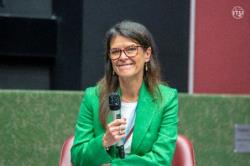
A Belgian Lawyer by training, Sofie Maddens is the Chief, of the ITU BDT Digital Knowledge Hub Department and Head of the Regulatory and Market Environment Division.
She has managed complex private sector, government, and regional and international projects and grants for national governments and their National Regulatory Authorities, the European Commission, the World Bank, the Telecommunications Development Bureau of the ITU as well as for a wide variety of private telecommunications, consulting and financial sector clients in Asia and the Middle East, as well as in the Americas, Europe and Africa.
She has held senior management positions since 1994 in both the public and private sectors at national and international level, leading and implementing projects and programmes on ICT institutional and organizational frameworks and capacity, infrastructure development, knowledge management systems and platforms; data management and analysis, and advising on and building institutional and organizational capacity.
She has taught and advised on privatization strategies, infrastructure development, liberalization and competition strategies, market entry and universal access strategies, use of scarce resources, consumer protection policies, as well as international trade and regulatory negotiations, bringing in her knowledge and experience of industry trends and innovative solutions for ICT/digital policy and regulation and development. In addition, she has authored numerous strategic, political, legal, and regulatory texts as well as international trade negotiations strategies in the field of ICT/digital.
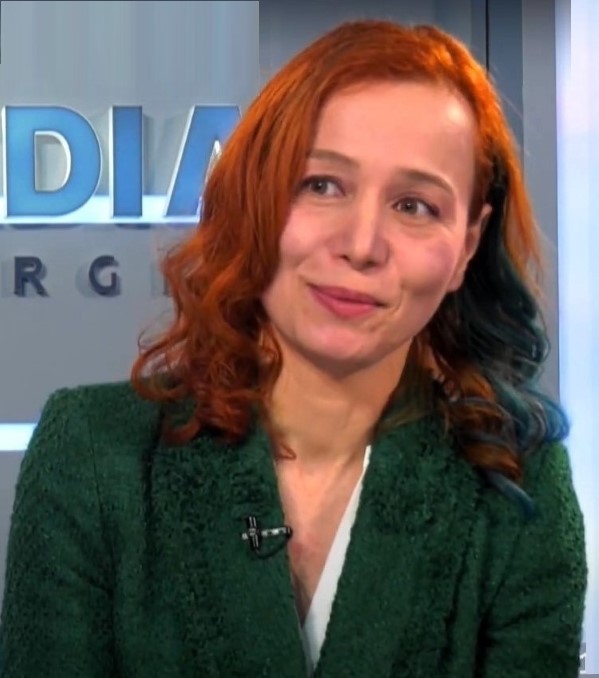.jpg?maxwidth=250)
Ms. Ekaterine Imedadze has been serving as a commissioner of the Georgian National Communications Commission (ComCom) since March 2021. She previously held the position of the Head of the Telecommunications Market Regulation Department at ComCom.
Ms. Imedadze has 15 years of professional expertise in the telecommunications industry, encompassing international work experience. Ms. Imedadze held several senior positions at the international telecommunications group company VEON Ltd., including head of global project management and internal control and risk management lead. Ms. Imedadze has also served as the head of finance for a number of prominent private enterprises.
Ms. Imedadze holds an MBA from the University of Bradford School of Management and completed the Innovation Leadership program at the Massachusetts Institute of Technology (MIT). She earned a master’s degree in physics as well as a postgraduate diploma in artificial intelligence and fuzzy logic from Tbilisi State University, and she is currently pursuing an LL.M. in competition law and economics at the Brussels School of Competition (BSC).
She speaks Georgian, English, German and Russian.
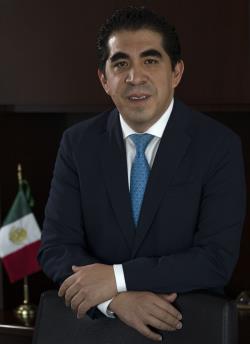
Arturo Robles has served as Commissioner of the Federal Telecommunications Institute (IFT) since April 2017. He is a Telecommunications Engineer at the Universidad Nacional Autónoma de México (UNAM, by its acronyms in Spanish). He studied a joint PhD in Telecommunications and holds a Certificate of Advance Studies in Signals and Communications Theory from the Universidad Politécnica de Madrid.
He also holds Executive Certificates in Management and Leadership, and in Strategic Innovation from the Massachusetts Institute of Technology (MIT Sloan School). Additionally, he has also completed diplomas in Telecommunications Industrial Organization and Management in Spain and Digital Markets Regulation in Belgium.
His professional experience includes collaboration with European operators in strategic development and technological evolution and with global consulting firms specializing in the technological, economic, and political-regulatory analysis of multinational telecommunications and information technology projects.
He has worked on evaluation, policy design, and international frequency coordination of satellite systems for national security and social connectivity. He also served as a technical advisor and a social witness for international pro-transparency organizations and conducted research in Competitiveness Centers, as well as Research, Development, and Innovation (R+D+i) in Europe and Mexico.
In 2015, Mr. Robles joined the IFT as Deputy General Director of Prospective Research. In April 2017, he approved the knowledge tests and selective processes and was nominated by the Federal Executive and ratified by the Senate of the Republic as Commissioner of the Federal Telecommunications Institute.
He has published several articles in international media and publications on topics such as public policy, strategies, digital economic, and regulation of Information and Communication Technologies.
The Commissioner served as Vice-Chair of the Committee on Digital Economy Policy (CDEP) of the Organization for Economic Co-operation and Development (OECD).
Commissioner Robles currently serves as Chair of the Permanent Consultative Committee on Radiocommunications of the Inter-American Telecommunications Commission (CITEL) of the Organization of American States (OAS) and of the Working Party on Artificial Intelligence Governance (AIGO) of OECD.
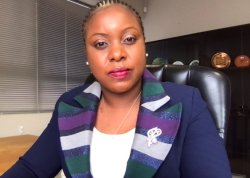
Ms. Bridget Mphatso Linzie was appointed as the Executive Secretary (ES)at the Communications Regulators’ Association of Southern Africa (CRASA) from the 1st June 2021. This is the first time that CRASA Members have appointed a woman as their Executive Secretary in the organization’s 24-year history. She is entrusted with the responsibility to assist the SouthernAfrican Development Community (SADC) to achieve harmonisation of its Electronic Communications and Postal regulatory frameworks.
Prior to being appointed to the ES position, Ms Linzie served as the CRASA Head of Electronic Communications under the department that develops various model ICT regulatory guidelines that are adapted by the CRASA Members. During her tenure in that office, she managed to oversee development of over 35 model guidelines and production of position papers on various regulatory thematic areas.
Prior to being the Head of Electronic Communications, Ms Linzie was the CRASA Operations Manager. During that period, Ms Linzie leads the organization during a critical time when SADC Ministers responsible for Telecommunications, Postal and ICTs resolved in June 2009 to merge CRASA with the Southern African Postal Regulators’ Association (SAPRA). SAPRA focused on the harmonisation of regulation of the postal markets in Southern Africa. CRASA therefore since 2011, focuses on harmonisation of regulatory frameworks for the telecommunication, broadcasting and postal markets.
Ms Linzie has more than 25 years’ experience in the Electronic Communications industry and joined CRASA in 2006. Prior to joining CRASA, she worked for 10years with Malawi Telecommunications Limited (MTL) under the business development department. She holds a Social Science (Economics Major) Degree from the University of Malawi and a Masters Degree in Communications Management (ICT Regulation) from Strathclyde University (Scotland).
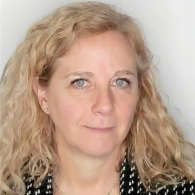.png?maxwidth=250)
Senior Programme Officer with the Telecommunication Development Bureau (BDT) of the International Telecommunication Union (ITU) dealing with policy and regulatory matters. Nancy had been involved in telecom/ICT reform for more than 25 years. As a senior regulatory expert, she coordinates and is a contributing author to regulatory publications. She is also actively involved in the organization of global and regional events and in training programmes for regulators and policy-makers. Nancy contributes to projects implementation and further delivers reports, articles and presentations on sector reform and digital transformation at regulatory meetings around the world.

Louis-Marc SAKALA, a Computer Science and Telecommunications Engineering graduate with an Executive MBA from Paris Dauphine University, is the Director General of ARPCE Congo and a Commander in the Congolese Order of Merit. He began his career in 2007 as a Systems Engineer at the European Aeronautic Defense and Space Company (EADS)-AIRBUS DEFENSE in Elancourt, France, before joining THALES COMMUNICATION France as a Systems Integration and Validation Engineer.
In 2010, he joined ARPCE Congo as Head of the Frequency Management Service, then served as Technical Advisor to the Director General, also overseeing the Operators and Service Providers Department. In 2018, he became the Director of Networks and Electronic Communications before being appointed Director General of ARPCE by presidential decree in 2020.
In 2022, he was elected Executive President of ARTAC, (the Central African African Countries Regulators Assembly);
In 2023, he became Vice-President of Fratel, (the Global Francophones Regulators Network) for which he will serve as President in 2024.
Under his leadership, ARPCE has undertaken bold reforms and implemented ambitious projects, including:
· Revitalizing international cooperation and action, settling all outstanding debts with international postal and telecommunications institutions, and increasing participation in international meetings.
· Coordinating META's 2Africa project.
· Establishing an electronic transaction monitoring center; assisting the state with the implementation of the Electronic Stamp for standardized invoicing and a Digital Hub to boost the tax base in Congo and control financial flows locally and within the CEMAC zone.
· Completely exempting mobile phone terminals from taxes.
· Setting up a certification laboratory for electronic equipment.
· Implementing a sustainable Internet project and a responsible digital observatory.
· Developing an integrated and automated frequency management system.
· Updating the national frequency allocation plan.
-
 C6. Enabling environment
C6. Enabling environment
-
 Goal 9: Build resilient infrastructure, promote sustainable industrialization and foster innovation
Goal 9: Build resilient infrastructure, promote sustainable industrialization and foster innovation
-
 Goal 11: Make cities inclusive, safe, resilient and sustainable
Goal 11: Make cities inclusive, safe, resilient and sustainable
Goal 9: Industry, innovation and infrastructure
Goal 11: Sustainable cities and communities
All participants and delegates coming physically to the WSIS+20 Forum High-Level Event must complete the registration form available at: https://www.itu.int/net4/wsis/forum/2024/Home/Registration. The e-confirmation will be the sole document provided for visa support.